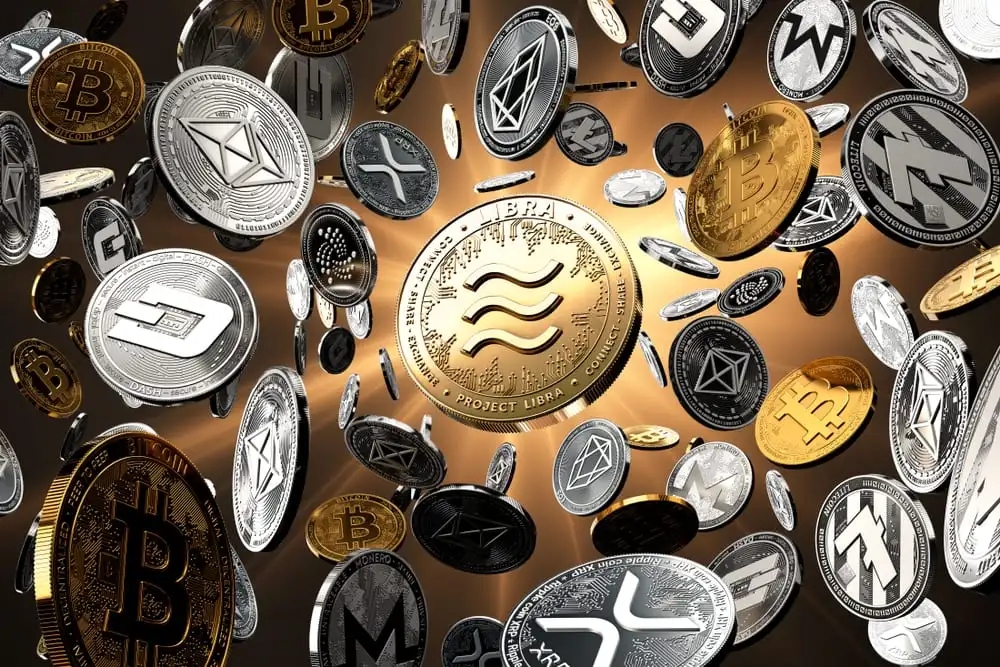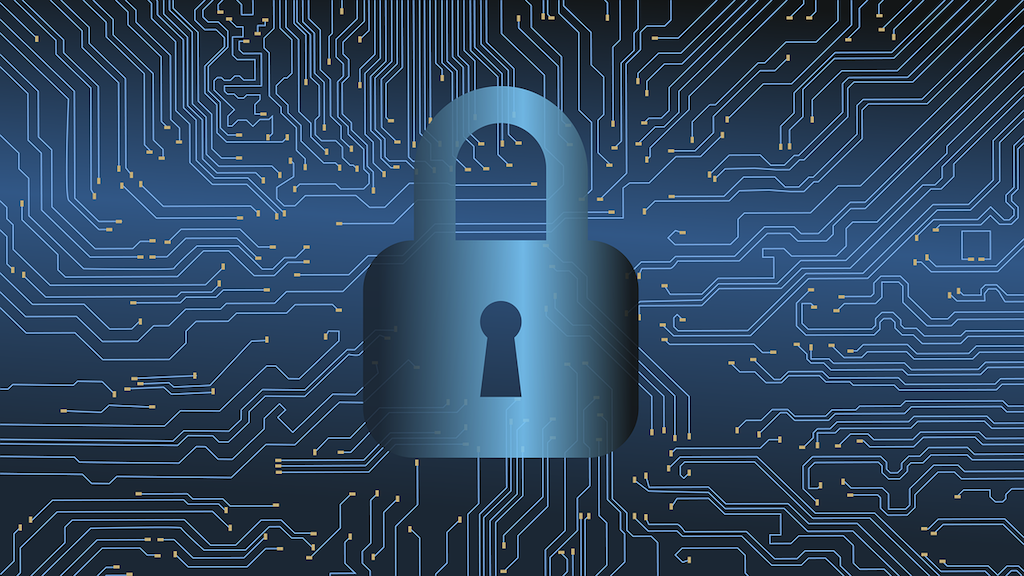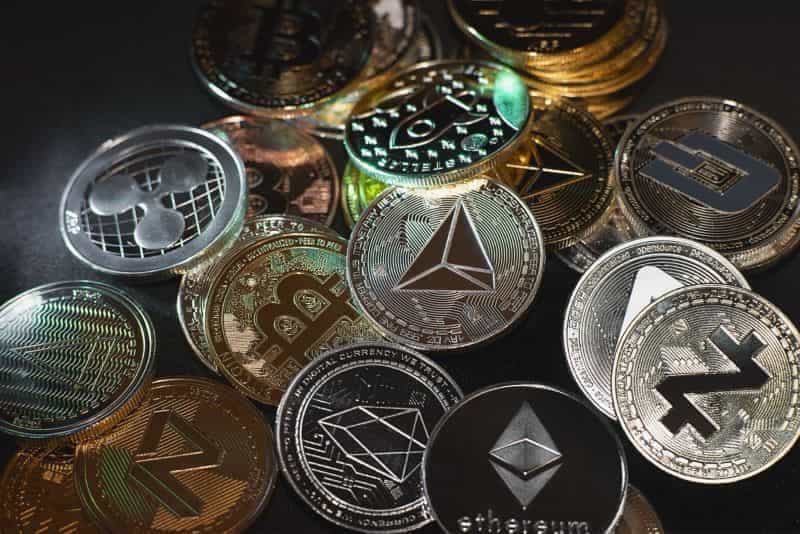Altcoin Security Best Practices - Protecting Your Altcoin Investments
Safeguard your altcoin investments with Altcoin security best practices. Learn how to protect your digital assets effectively.
Author:Camilo WoodReviewer:Stefano MclaughlinFeb 15, 20241.1K Shares29.9K Views

Altcoins, or alternative cryptocurrencies to Bitcoin, have gained popularity in the digital asset space, offering diverse investment opportunities beyond the leading cryptocurrency. However, with the increasing adoption of altcoins comes a heightened need for robust security measures to protect investors' assets from various threats, including hacking, scams, and theft. In this guide, we will explore essential Altcoin security best practices.
Let's have a look at the Altcoin security best practices in detail:
Choose Secure Wallet Solutions
Selecting a secure wallet solution is paramount for protecting altcoin holdings. Consider using hardware wallets, such as Ledger or Trezor, which offer offline storage and enhanced security features like PIN protection and passphrase encryption. Alternatively, opt for reputable software wallets with robust security protocols and a proven track record of reliability.
Use A Hardware Wallet
A hardware wallet is a tangible object that stores your private keys offline, preventing hackers from almost ever accessing your funds. Since these wallets are not internet-connected, they are not vulnerable to cyberattacks. Trezor and Ledger Nano hardware wallets are two examples of well-known models.
Enable Two-Factor Authentication (2FA)
Implementing two-factor authentication adds an extra layer of security to your altcoin accounts by requiring a second form of verification, such as a one-time code sent to your mobile device. Enable 2FA wherever possible, including exchanges, wallet services, and other platforms that handle your altcoin transactions.
Stay Informed About Phishing Schemes
Cybercriminals frequently employ phishing as a technique to steal Altcoins. In these scams, victims are tricked into disclosing their private keys or login credentials, or they click on a link and enter their personal data on a phony website.
Avoid responding to unsolicited emails or messages that request critical information in order to protect yourself. Before providing your information in any online form, make sure the website or service is genuine.
Keep Software Updated
Regularly update your wallet software, operating systems, and antivirus programs to patch known vulnerabilities and protect against emerging threats. Many security breaches occur due to outdated software that hackers exploit to gain unauthorized access to users' devices and accounts.
Practice Safe Password Management
Use strong, unique passwords for each altcoin-related account and avoid using easily guessable phrases or sequences. Consider using a reputable password manager to securely store and manage your login credentials, reducing the risk of password-related security breaches.
Verify Website URLs
Before entering any sensitive information or conducting transactions on a website, verify that the URL is spelled correctly and uses secure HTTPS encryption. Beware of malicious websites designed to mimic legitimate altcoin platforms to deceive users into divulging their login credentials or private keys.
Secure Your Private Keys
Private keys are essential for accessing and controlling your altcoin holdings. Store private keys securely offline, preferably in a hardware wallet or paper wallet kept in a secure location. Never share your private keys with anyone, and avoid storing them in easily accessible digital formats.
Diversify Your Holdings
Avoid consolidating all your altcoin holdings in a single wallet or exchange account. Diversify your holdings across multiple wallets and platforms to mitigate the impact of a security breach or exchange hack on your overall investment portfolio.
Exercise Caution With Third-Party Services
Be cautious when using third-party services such as altcoin lending platforms, staking pools, or decentralized finance (DeFi) protocols. Thoroughly research the reputation, security measures, and track record of any service before entrusting them with your altcoin assets.
Stay Informed About Security Threats
Remain vigilant and stay informed about emerging security threats and best practices for altcoin security. Follow reputable cybersecurity blogs, news sources, and community forums to stay updated on the latest security trends, vulnerabilities, and recommended countermeasures.
Backup Your Wallet
In the event that your gadget is misplaced, stolen, or breaks, you must make a backup of your wallet. A backup copy of your wallet should be stored somewhere safe, like as a paper wallet or USB drive. In this manner, you may simply recover your wallet and get back access to your cryptocurrencies in the event that something were to happen to your smartphone.
Altcoin Security Best Practices - FAQs
What Is The Safest Way To Store Altcoins?
Keeping your altcoins in a hardware wallet is thought to be the safest option. As a result, Trezor One and Ledger Nano S support storing altcoins.
What Are The Best Practices For Securing Altcoin Investments?
Best practices for securing altcoin investments include choosing secure wallet solutions, enabling two-factor authentication, keeping software updated, practicing safe password management, and staying vigilant against phishing attempts.
How Can I Choose A Secure Wallet Solution For Storing Altcoins?
Choose a secure wallet solution for storing altcoins by opting for hardware wallets like Ledger or Trezor, or reputable software wallets with robust security features and a proven track record of reliability.
What Are Common Security Threats To Altcoin Investments?
Common security threats to altcoin investments include hacking, phishing attacks, malware, unauthorized access to private keys, and vulnerabilities in wallet software or exchanges.
How Can I Protect My Private Keys For Altcoin Security?
Protect your private keys for altcoin security by storing them securely offline, preferably in a hardware wallet or paper wallet kept in a secure location, and avoiding sharing them with anyone.
What Should I Do To Avoid Falling Victim To Phishing Attempts Targeting Altcoin Investors?
To avoid falling victim to phishing attempts targeting altcoin investors, exercise caution when clicking on links or downloading attachments from unsolicited emails or messages, and verify website URLs and encryption protocols before entering sensitive information.
Why Is It Essential To Keep Altcoin Software Updated?
Keeping altcoin software updated is essential to patch known vulnerabilities and protect against emerging security threats, reducing the risk of unauthorized access or loss of funds due to outdated software.
Why Altcoins Are Risky?
The market capitalization and trading volume of altcoins are smaller. They are therefore vulnerable to sudden increases in volatility. It is simpler to move the market in these assets when there is less liquidity.
Conclusion
Altcoin security is paramount for protecting your cryptocurrency investments in an increasingly digital and interconnected world.
By implementing robust Altcoin security best practices such as choosing secure wallet solutions, enabling two-factor authentication, keeping software updated, practicing safe password management, and staying vigilant against phishing attempts, you can mitigate the risk of security breaches and safeguard your altcoin holdings.
Remember to stay informed about emerging threats and continuously evaluate and improve your security measures to stay one step ahead of potential attackers. With diligence and proactive security measures, you can enjoy peace of mind while participating in the exciting world of altcoin investing.
Jump to
Choose Secure Wallet Solutions
Use A Hardware Wallet
Enable Two-Factor Authentication (2FA)
Stay Informed About Phishing Schemes
Keep Software Updated
Practice Safe Password Management
Verify Website URLs
Secure Your Private Keys
Diversify Your Holdings
Exercise Caution With Third-Party Services
Stay Informed About Security Threats
Backup Your Wallet
Altcoin Security Best Practices - FAQs
Conclusion

Camilo Wood
Author

Stefano Mclaughlin
Reviewer
Latest Articles
Popular Articles

